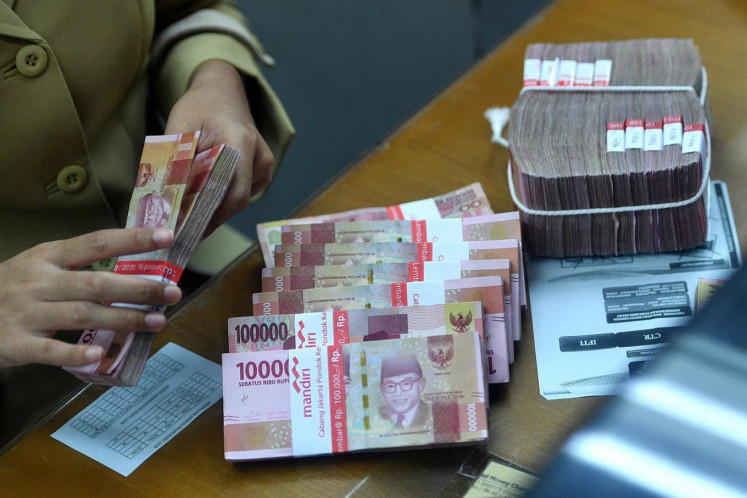Popular Reads
Top Results
Can't find what you're looking for?
View all search resultsPopular Reads
Top Results
Can't find what you're looking for?
View all search resultsEmbracing the Indonesian diaspora
The Youth Pledge of 1928 was the milestone of Indonesiaâs national identity, although it was not the first time the Indonesian brand had come to prominence
Change text size
Gift Premium Articles
to Anyone
T
he Youth Pledge of 1928 was the milestone of Indonesia's national identity, although it was not the first time the Indonesian brand had come to prominence. Three years prior to the oath, an organization of the Indonesian diaspora, Perhimpunan Indonesia (Indonesian Association), had audaciously called for independence. One of its leaders, Mohammad Hatta, eventually became our first vice president.
However, the organization was located thousands of miles away from Indonesia, as an association for Indonesian students in the Netherlands. The students could have abandoned their downtrodden homeland and indulged themselves in the lavish European universe, but they opted to pull out all the stops to fight for our independence at the risk of being persecuted by the colonial authority.
Perhimpunan Indonesia is the quintessential testament that wherever it is, the Indonesian diaspora can play a role in supporting its homeland. Today, one of the most tangible benefits that our diaspora generates is remittance.
Data from the Agency for the Placement and Protection of Indonesian Migrant Workers (BNP2TKI) revealed that Indonesia received over Rp 97 trillion (US$7.18 billion) in remittance in 2014 alone from migrant workers. The diaspora can be the conduit for a more vibrant economic partnership between foreign hosts and home countries. In a way, foreign migrants are our mouthpiece, and can demonstrate what this great country has to offer to the world. Furthermore, they can transfer the invaluable skills and experience they gained abroad.
Despite what they have done for their country, some still cling to the notion that our diaspora consists solely of a bunch of aloof big shots who could not care less about the daily ordeal that the people in their motherland go through.
Nothing could be farther from the truth, and the Indonesia Diaspora Network (IDN) easily debunks that myth. The IDN is the umbrella organization for our diaspora, with 74 chapters in 44 countries. The group is the main convener of the third congress of the Indonesia diaspora, held on Aug. 12-14 in Jakarta.
Unlike previous congresses, this time around the IDN is in the driver's seat with government support. The IDN is funding the event, and has also bankrolled many commendable activities, such as a micro-library initiative in Bandung, which will be inaugurated this weekend. The theme of the congress is Bakti Bangsa or 'Serving the Nation', which aptly encapsulates the spirit of our diaspora.
The congress is just the tip of the iceberg in terms of their contribution. Over the past few years our diaspora has done the country a great service, leaving no stone unturned to promote our country's enormous potential overseas.
The Indonesia Diaspora Business Council (IDBC) established the Palapa Ventures in the Silicon Valley, for example, to put Indonesia on the radar in the epicenter of the world's information technology industry. It also beats the drum for our cuisine on the global stage such through the Luvinary initiative. Aside from that, the IDBC has also carried out numerous philanthropic activities among local communities.
As laudable as their contribution is, expat Indonesians can still go the extra mile to lend their compatriots back home a hand. First off, they could boost the skill transfer by expanding contact with our local universities, enabling them to offer short courses for students or undertake collaborative research with them.
Second is enhancing diaspora investment by strengthening the support of the IDBC for local small and medium-scale enterprises. They can also assist basic infrastructure development in their communities of origin, such as renovating schools or fixing sanitation.
Third is consolidating diaspora organizations by strengthening taskforces and continuously working to nurture a sense of ownership. Expats also need to foster a network by updating their database of the Indonesian brain bank.
The government must throw its weight behind our diaspora, considering its constitutional mandate to protect all Indonesian citizens anywhere in the world. There is also a plan to strengthen the government's institutional capacity to serve our diaspora better; in at least 12 countries, there are ministries specifically designated to cater to the needs of their respective diasporas.
The government has also drafted diaspora-friendly policies, such as the 2006 Citizenship Law allowing dual nationalities to children of mixed-marriage couples. For the government, the diaspora is not just a meal ticket to exploit, but comrades to work with.
Our diaspora has propelled our quest for freedom from colonialism. Seventy years on, Indonesians abroad can help bring us closer to the dreams of the founding gathers.
___________________________
The writers work for the Foreign Ministry. This is a personal view.










